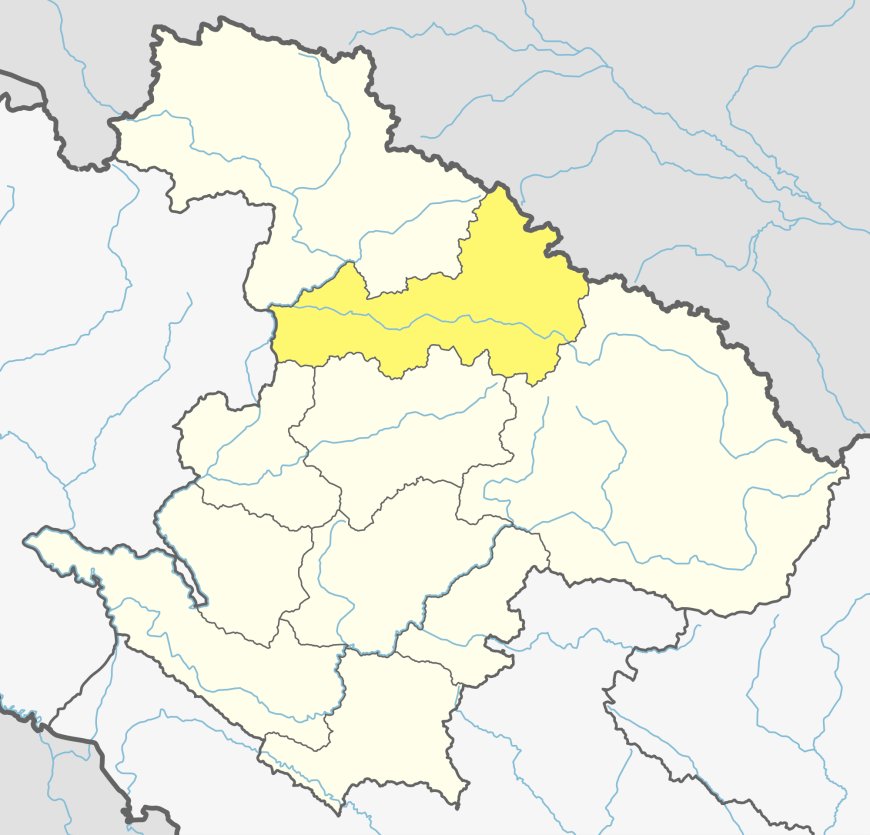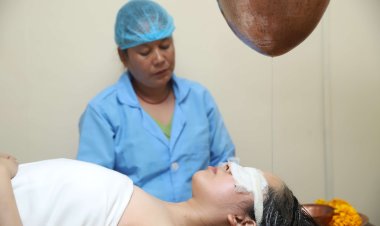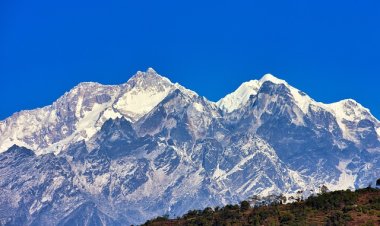Mugu: Explore the Hidden Paradise of Rara Lake and More
Visit Mugu for the beauty of peaceful Rara Lake, breathtaking Himalayan landscapes, and the peacefulness of Nepal's remote Karnali region.

Introduction

Mugu is a beautiful district in the Karnali Province of Nepal, renowned for its stunning natural beauty, cultural richness, and historical significance. Located in the northwestern region of the country, it is home to Rara Lake, Nepal’s largest freshwater lake, often referred to as the "Blue Jewel" of Nepal. The district’s diverse landscapes range from serene alpine meadows to rugged mountain peaks, making it a paradise for adventurers, nature enthusiasts, and spiritual seekers alike. With its unique cultural heritage and pristine environment, this district offers an unparalleled experience for those who venture into its remote yet captivating terrains.
Geographical Overview
This district covers an area of approximately 3,535 square kilometers, featuring a dramatic topography that includes snow-capped mountains, dense forests, and tranquil rivers. The district’s elevation ranges from 1,200 meters to 6,717 meters, encompassing Mount Churen Himal, one of its highest peaks.
The climate varies from temperate in the lower regions to alpine in the higher altitudes, fostering diverse ecosystems. The Karnali River, one of Nepal’s longest rivers, flows through this district, providing vital resources for agriculture, hydropower, and biodiversity.
Table: Geographical Features
|
Feature |
Data |
|
Total Area (sq. km) |
3,535 |
|
Altitude Range (m) |
1,200–6,717 |
|
Major Rivers |
Karnali |
|
Climatic Conditions |
Temperate to Alpine |
Demographics
This district is home to approximately 60,000 people, comprising a mix of ethnic groups that reflect its rich cultural diversity. The Khas Arya community constitutes the majority, followed by Thakuri, Dalit, and other indigenous groups. Nepali is the predominant language, while local dialects like Mugu-Karnali and Tibetan are also spoken. This cultural mosaic is evident in the district’s vibrant festivals, traditional attire, and rituals.
Table: Ethnic Composition
|
Ethnic Group |
Percentage (%) |
|
Khas Arya |
50% |
|
Thakuri |
25% |
|
Dalit |
15% |
|
Other Groups |
10% |
Cultural and Historical Significance
This district boasts a rich cultural and historical heritage, deeply rooted in its indigenous traditions and spiritual practices. The Khas Arya community celebrates Dashain and Tihar with grandeur, symbolizing the triumph of good over evil. Similarly, the Thakuri community observes Bhoto Jatra, a traditional festival showcasing cultural attire and rituals.
The district is also known for its ancient monasteries, including the Chhayanath Temple, a revered site dedicated to the local deity. These landmarks not only hold religious significance but also offer insights into Mugu’s historical prominence as a trading hub along the ancient salt route.
Table: Key Festivals
|
Festival |
Month |
Significance |
|
Dashain |
October |
Hindu festival of victory |
|
Tihar |
November |
Festival of lights |
|
Bhoto Jatra |
May |
Celebration of cultural traditions |
|
Lhosar |
February |
Tibetan New Year |
Major Attractions and Activities
The district’s unparalleled natural and cultural attractions make it a must-visit destination for both domestic and international travelers. The Rara National Park, which encompasses Rara Lake, is the district’s crown jewel. Known for its crystal-clear waters and diverse flora and fauna, Rara Lake offers a serene retreat amidst nature.
Other notable attractions include the Sinja Valley, the cradle of the Khas language and culture, and Gamgadhi, the district headquarters, known for its bustling local markets. Adventure enthusiasts can explore trekking routes to the Humla region or enjoy boating and bird-watching around Rara Lake.
Table: Major Attractions
|
Attraction |
Location |
Highlight |
|
Rara Lake |
Rara National Park |
Nepal’s largest freshwater lake |
|
Sinja Valley |
Southern Part |
Historical significance of Khas culture |
|
Chhayanath Temple |
Gamgadhi |
Religious and cultural site |
|
Karnali River |
Central Part |
White-water rafting and fishing |
The district offers various activities, including trekking, camping, and cultural tours. This district's focus on eco-tourism ensures that visitors can experience its natural beauty sustainably while supporting local communities.
Economic Overview
Agriculture is the backbone of this district’s economy, with barley, buckwheat, and potatoes being the primary crops cultivated. The district is also renowned for producing high-value medicinal herbs like yarsagumba, which contribute significantly to the local economy.
Tourism is an emerging sector, driven by attractions like Rara Lake and the Sinja Valley. Traditional crafts, including wool weaving and handmade carpets, further enhance the economic potential while preserving cultural heritage.
Table: Economic Highlights
|
Sector |
Contribution |
|
Agriculture |
Barley, buckwheat, potatoes, and medicinal herbs |
|
Tourism |
Rara Lake, Sinja Valley |
|
Traditional Crafts |
Wool weaving, handmade carpets |
Conclusion
Mugu is a district that seamlessly blends natural beauty, cultural heritage, and economic promise. Its breathtaking landscapes, from the beautiful Rara Lake to the majestic Karnali River, offer an escape into nature’s wonder. The district’s rich traditions, festivals, and warm hospitality add depth to its allure.
Whether you seek adventure, spiritual enrichment, or a glimpse into Nepal’s diverse culture, the district has something unique to offer. As ecotourism and sustainable practices continue to develop, this district stands as a testament to the harmony between humanity and nature, promising visitors an unforgettable journey into its enchanting realms.
Frequently Asked Questions (FAQs)
1. Where is Mugu located?
Mugu is situated in the Karnali Province of northwestern Nepal.
3. What is Mugu best known for?
The district is renowned for Rara Lake, Nepal’s largest freshwater lake.
4. Which river flows through Mugu?
The Karnali River is the major river flowing through Mugu.
5. What is the dominant ethnic group in Mugu?
The Khas Arya community forms the largest ethnic group in the district.
6. What are the major crops grown in Mugu?
Barley, buckwheat, and potatoes are the primary crops cultivated in Mugu.
7. What is the best time to visit Mugu?
Spring (March to May) and autumn (September to November) are ideal for visiting Mugu.
8. What cultural festival is celebrated by the Thakuri community?
The Thakuri community celebrates Bhoto Jatra.
9. What is the significance of Rara Lake?
Rara Lake is Nepal’s largest freshwater lake, offering stunning natural beauty and biodiversity.
9. What makes Sinja Valley special?
Sinja Valley is historically significant as the cradle of the Khas language and culture.
What's Your Reaction?







































































































